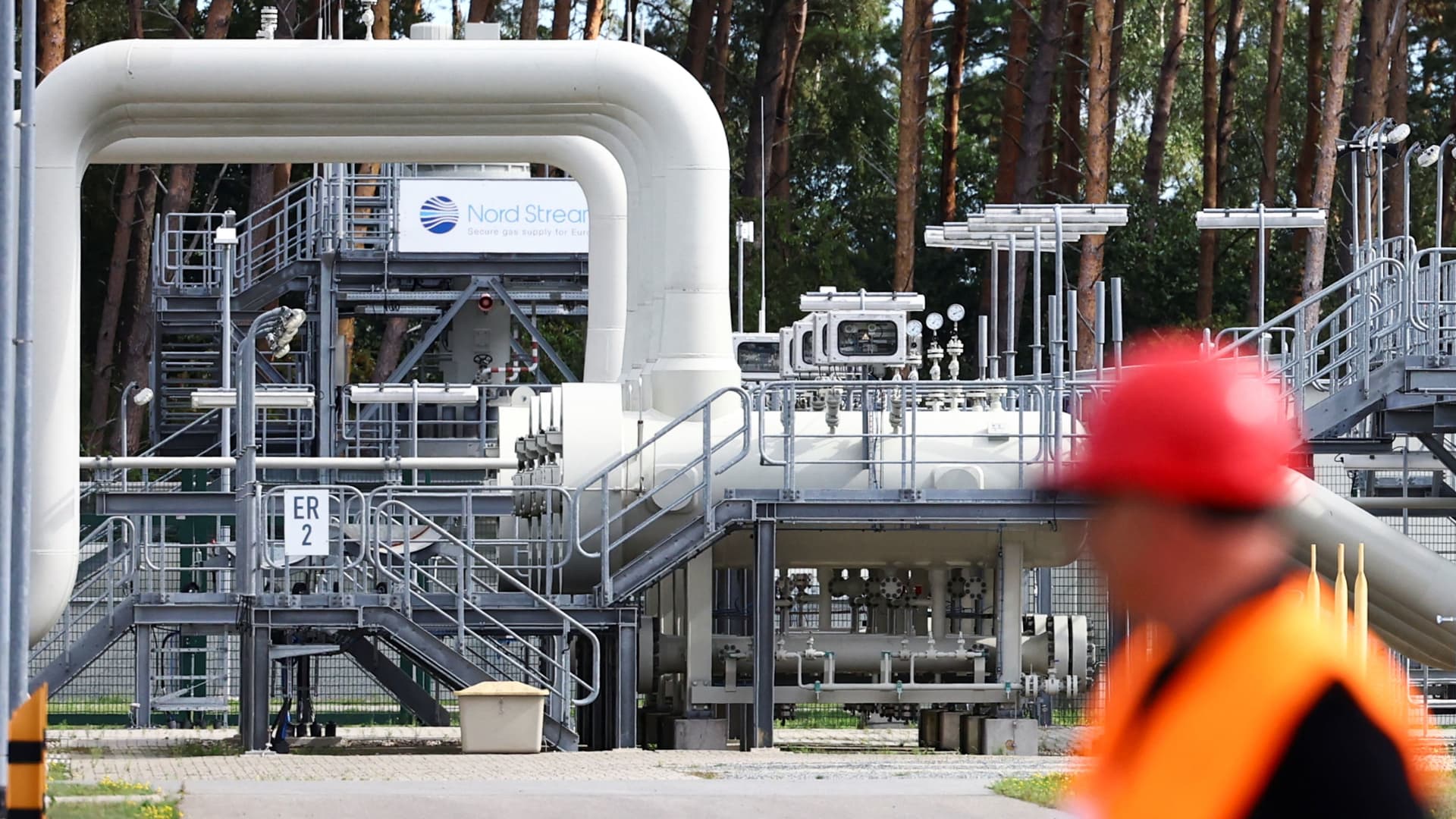
Environmental campaigners argue the risk of sabotage or an accident makes fossil infrastructure a “ticking time bomb.”
Lisi Niesner | Reuters
European Union energy ministers agreed to a “dynamic” cap on natural gas prices Monday after two months of intense negotiations.
Introducing a limit on gas prices has proved controversial for European officials. While many EU member states have argued that the measure is essential to bring down sky-high energy costs for consumers, others have worried about the potential market implications of the policy.
“We did our job, we have the deal. Another mission impossible accomplished,” Jozef Sikela, industry minister of the Czech Republic, which holds the EU Council presidency, said in a press conference.
Energy ministers overcame their differences and agreed to what they’re calling a market correction mechanism. It will be automatically activated under two conditions: If front-month gas contracts exceed 180 euros ($191) per megawatt hour on the Dutch Title Transfer Facility — Europe’s main benchmark for natural gas prices — for three working days in a row; and the price is 35 euros higher than a reference price for liquid natural gas on global markets for the same period.
The measure will apply from Feb. 15. When applied, it will set a “dynamic bidding limit” on natural gas futures transactions for 20 working days.
The Dutch TTF traded around 109 euros per megawatt hour on Monday.
Sikela stressed that it is not a strict cap, as prices could potentially go above the limit if prices on the LNG market go above a certain level. “In other words, this is not a fixed cap but a dynamic one,” Sikela added.
Kadri Simson, European commissioner for energy, said in a press conference: “It is an instrument to prevent episodes of excessive gas prices which do not reflect world market prices. We have seen this happening, for example in August this year when gas prices spiked to more than 300 euros per megawatt hour.”
“High and extreme volatile gas prices are damaging our economy. They are also damaging our households and businesses. This aims to take away the war premium, the mark-up compared to global LNG prices, that Europe pays due to the way prices form on the TTF market,” she said.
“Today, we reached an agreement on a proposal for a market correction mechanism to protect citizens & economy against excessively high [energy prices],” Tinne Van der Straeten, Belgium’s energy minister, wrote on Twitter.
“From the start there was a common goal: keeping prices under control & securing security of supply. Today, we achieved this goal.”
This is a breaking news story and will be updated shortly.
